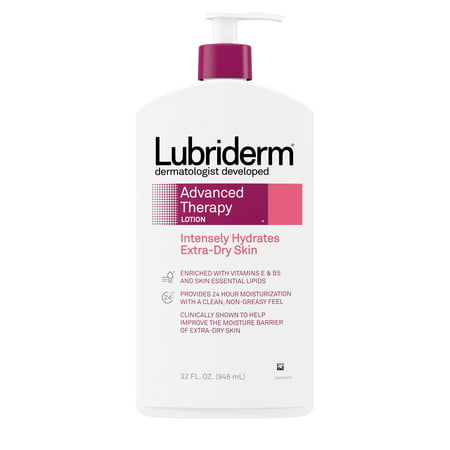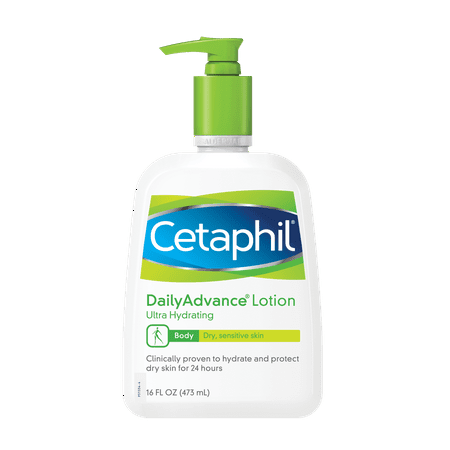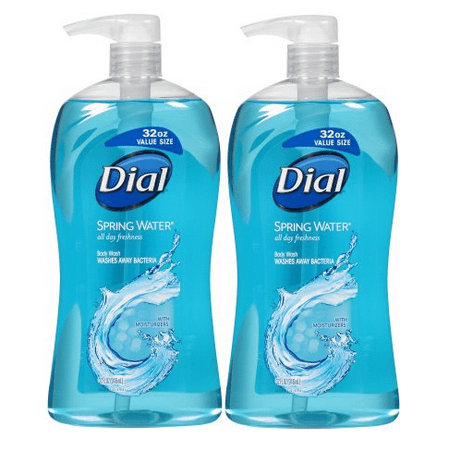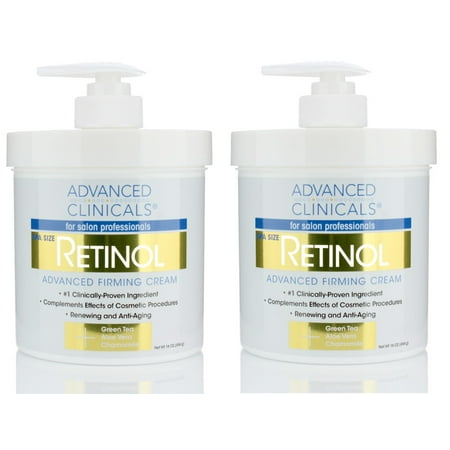Lubriderm Advanced Therapy Lotion with Vitamin E and B5, 32 fl. oz
Lubriderm Advanced Therapy Daily Moisturizing Lotion soothes and helps relieve extra-dry skin. From a dermatologist-developed brand, this lotion is clinically shown to help moisturize for 24 hours, and transform dry skin into healthy-looking, more resilient skin. Formulated with vitamins E and B5 plus skin-essential lipids naturally found in healthy skin, this moisturizing lotion replenishes and strengthens your skin’s moisture barrier. Plus, its formula is non-greasy with a clean, comfortable feel.








32-fl. oz large bottle of Lubriderm Advanced Therapy Daily Moisturizing LotionSpecially designed for extra-dry skin to help hydrate, replenish & strengthen skin moisture barrierHydrating lotion is clinically shown to help moisturizer for 24 hoursTransforms dry skin into healthy looking, more resilient skinFormulated with Vitamins E and B5 plus skin-essential lipids found naturally in healthy skinMoisturizing lotion replenishes and strengthens your skin’s moisture barrierLotion formula is non-greasy with a clean, comfortable feelUltra moisturizing body lotion from Lubriderm, a dermatologist-developed brand
32 may refer to:
- 32 (number), the natural number following 31 and preceding 33
- one of the years 32 BC, AD 32, 1832, 1932, 2032
E, or e, is the fifth letter and the second vowel letter of the Latin alphabet, used in the modern English alphabet, the alphabets of other western European languages and others worldwide. Its name in English is e (pronounced ); plural es, Es or E's.
It is the most commonly used letter in many languages, including Czech, Danish, Dutch, English, French, German, Hungarian, Latin, Latvian, Norwegian, Spanish, and Swedish.
Lotion is a low-viscosity topical preparation intended for application to the skin. By contrast, creams and gels have higher viscosity, typically due to lower water content. Lotions are applied to external skin with bare hands, a brush, a clean cloth, or cotton wool.
While a lotion may be used as a medicine delivery system, many lotions, especially hand lotions and body lotions and lotion for allergies are meant instead to simply smooth, moisturize, soften and, sometimes, perfume the skin.
Some skincare products, such as sunscreen and moisturizer, may be available in multiple formats, such as lotions, gels, creams, or sprays.
A therapy or medical treatment is the attempted remediation of a health problem, usually following a medical diagnosis. Both words, treatment and therapy, are often abbreviated tx, Tx, or Tx.
As a rule, each therapy has indications and contraindications. There are many different types of therapy. Not all therapies are effective. Many therapies can produce unwanted adverse effects.
Treatment and therapy are often synonymous, especially in the usage of health professionals. However, in the context of mental health, the term therapy may refer specifically to psychotherapy.
Vitamins are organic molecules (or a set of closely related molecules called vitamers) that are essential to an organism in small quantities for proper metabolic function. Essential nutrients cannot be synthesized in the organism in sufficient quantities for survival, and therefore must be obtained through the diet. For example, vitamin C can be synthesized by some species but not by others; it is not considered a vitamin in the first instance but is in the second. Most vitamins are not single molecules, but groups of related molecules called vitamers. For example, there are eight vitamers of vitamin E: four tocopherols and four tocotrienols.
The term vitamin does not include the three other groups of essential nutrients: minerals, essential fatty acids, and essential amino acids.
Major health organizations list thirteen vitamins:
- Vitamin A (all-trans-retinols, all-trans-retinyl-esters, as well as all-trans-beta-carotene and other provitamin A carotenoids)
- Vitamin B1 (thiamine)
- Vitamin B2 (riboflavin)
- Vitamin B3 (niacin)
- Vitamin B5 (pantothenic acid)
- Vitamin B6 (pyridoxine)
- Vitamin B7 (biotin)
- Vitamin B9 (folic acid and folates)
- Vitamin B12 (cobalamins)
- Vitamin C (ascorbic acid and ascorbates)
- Vitamin D (calciferols)
- Vitamin E (tocopherols and tocotrienols)
- Vitamin K (phylloquinones, menaquinones, and menadiones)
Some sources include a fourteenth, choline.
Vitamins have diverse biochemical functions. Vitamin A acts as a regulator of cell and tissue growth and differentiation. Vitamin D provides a hormone-like function, regulating mineral metabolism for bones and other organs. The B complex vitamins function as enzyme cofactors (coenzymes) or the precursors for them. Vitamins C and E function as antioxidants. Both deficient and excess intake of a vitamin can potentially cause clinically significant illness, although excess intake of water-soluble vitamins is less likely to do so.
All the vitamins were discovered between 1913 and 1948. Historically, when intake of vitamins from diet was lacking, the results were vitamin deficiency diseases. Then, starting in 1935, commercially produced tablets of yeast-extract vitamin B complex and semi-synthetic vitamin C became available. This was followed in the 1950s by the mass production and marketing of vitamin supplements, including multivitamins, to prevent vitamin deficiencies in the general population. Governments have mandated the addition of some vitamins to staple foods such as flour or milk, referred to as food fortification, to prevent deficiencies. Recommendations for folic acid supplementation during pregnancy reduced risk of infant neural tube defects.
With or WITH may refer to:
- With, a preposition in English
- Carl Johannes With (1877–1923), Danish doctor and arachnologist
- With (character), a character in D. N. Angel
- With (novel), a novel by Donald Harrington
- With (album), a 2014 album by TVXQ
- With (EP), a 2021 EP by Nam Woo-hyun





Reviews
There are no reviews yet.